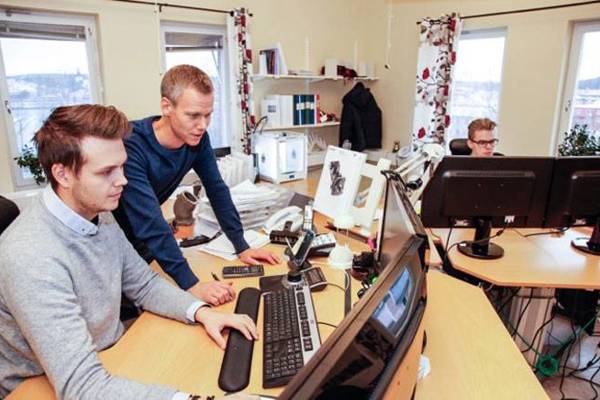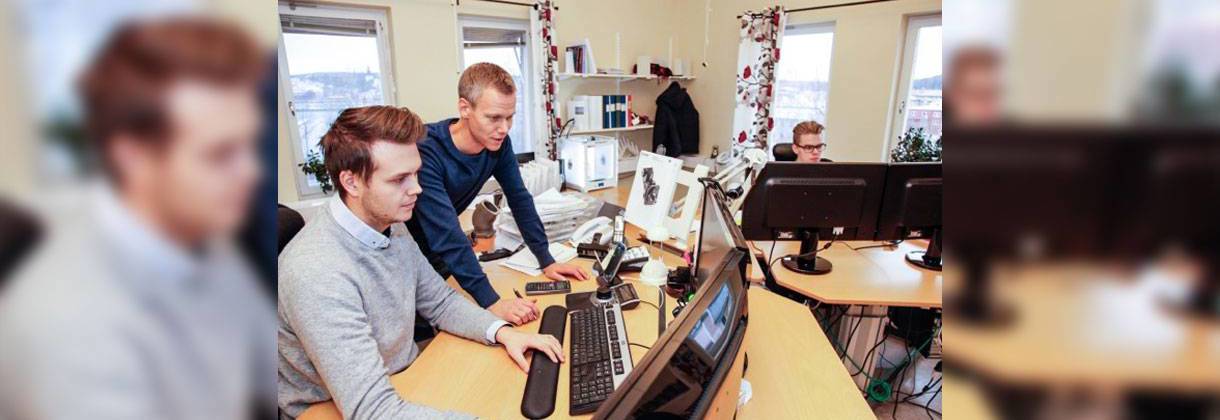The department that drives development
16.12.2015


Sunfab is a leading company in the field of hydraulics, especially when it comes to technological development. This is one result of the company having its very own innovative Research & Development Department.
The R & D Department at Sunfab in Hudiksvall consists of eight employees. Head of the department since November 2014 has been Andreas Wiberg. He already had extensive experience at Sunfab, having spent six years working as a designer in the R & D Department.
Lots of different jobs
“We have lots of different jobs in our department,” explains Andreas Wiberg. “Many people might believe that we only work on new development. But that’s only part of what we do. An equally important work area is ‘further development’, i.e. upgrading and developing existing products. This is something we work on continuously,” continues Andreas.
Customising the product
“Another important work area for the Department is customer modifications. Maybe, for example, a customer wants a unique shaft. We can do that, but there must be a guaranteed volume for it to be economically justifiable. The department is also responsible for the “Tech-mail” customer support function (see separate article), product training, production support and the operation and development of Sunfab’s test lab,” explains Andreas.
New product development important
“When it comes to developing new products, we start with a market requirement that comes from our Product Managers,” continues Andreas. “As well as many people in the department being involved in the task of developing a new product, we also collaborate with external suppliers, such as experts in a specific area such as tensile strength calculations or casting simulations.”
A number of secret projects under way
“At the moment we’re at a turning point, with many projects having been completed and a number of new ones starting up. Most of them are secret, but one thing I can say is that we’re working hard on the launch of a totally new pump, hopefully as early as the end of 2016,” concludes Andreas Wiberg.